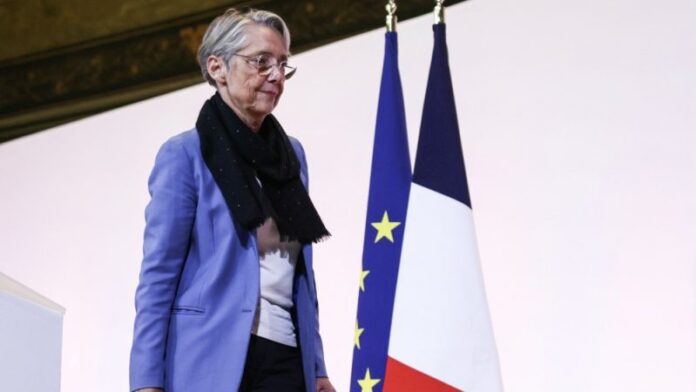French Prime Minister Elisabeth Borne resigned on Monday evening following a meeting with President Emmanuel Macron that lasted just over an hour, the Elysée Palace said in a press release, according to Euractiv.
Borne, who has held the post of prime minister since Macron was re-elected on 24 April 2022, wrote in her letter of resignation that Macron had informed her of his “desire to appoint a new prime minister” – suggesting that her resignation was not her decision.
“Elisabeth Borne has today tendered the resignation of the government to the President of the Republic, who has accepted it,” the Elysée Palace wrote.
Heading a government that did not have an absolute majority backing in parliament to pass laws made her tenure difficult, particularly the controversial immigration law passed at the end of December. This likely put Borne in a delicate position, which appears to have cost her the premiership.
Already last summer, Borne appeared to be weakened after another controversial bill – the pension reform bill – was adopted, but only because Borne bypassed parliament using Article 49.3 of the Constitution – a move that had provoked the anger of the opposition, part of the majority and many French citizens.
This led to mass protests that lasted several months.
“I have been passionate about this mission, guided by the constant concern, which we share, to achieve rapid and tangible results for our fellow citizens”, Borne wrote in her letter.
“Madam Prime Minister, dear Elisabeth Borne, your work in the service of our nation has been exemplary every day. You have implemented our project with the courage, commitment and determination of a stateswoman. Thank you from the bottom of my heart”, wrote Macron on X.
While the name of the future prime minister has not yet been made public, the news is expected to be announced by the Elysée Palace on Tuesday.
However, according to several sources and French media, the current National Education and Youth Minister, Gabriel Attal, has been rumoured to be Macron’s next choice.


